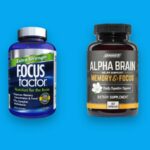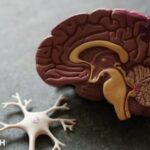
Table of Contents
Introduction
As a nootropic expert, I have often been asked about the benefits and drawbacks of using caffeine as a cognitive enhancer. While caffeine is a substance that most of us are familiar with, many people are not aware of its potential as a nootropic. This blog post aims to provide a comprehensive guide to caffeine as a nootropic, including its benefits, drawbacks, and fun facts.
Most of us have experienced the jolt of energy that caffeine can provide, whether it’s through a morning cup of coffee or an afternoon soda. However, caffeine can do much more than boost our energy levels. It can also enhance cognitive function and improve mental performance. As someone who has extensively researched and tested the effects of caffeine on cognitive performance, I know it is a handy tool for those looking to improve their mental performance.
That being said, caffeine is not a one-size-fits-all solution. Like any other substance, it has its benefits and drawbacks, and it’s essential to use it responsibly. This blog post will provide an overview of caffeine, how it works, and the benefits and disadvantages of using it as a nootropic. I will also offer tips for finding the correct dose and choosing the right caffeine source.
In addition, I will share some fun facts about caffeine to add a touch of humour to this post. From the world’s oldest cat, who enjoyed coffee with heavy cream, to the British man who set a world record for drinking a litre of coffee in just 16.84 seconds, caffeine has an exciting and often humorous history.
Overall, this post is intended to be both informative and enjoyable. So, whether you’re a coffee fan or just someone looking to improve their cognitive function, I hope you find this guide to caffeine as a nootropic informative and entertaining.
What is caffeine?
Caffeine is a natural stimulant in various plants, including coffee, tea, and cacao. It is the most commonly used psychoactive drug globally, with billions of people consuming it daily. As someone who has extensively researched caffeine, it is a fascinating substance with many effects on the human body and brain.
Caffeine works by blocking the action of adenosine, a neurotransmitter that promotes relaxation and sleepiness. By blocking adenosine, caffeine increases the activity of other neurotransmitters, such as dopamine and norepinephrine, which can improve mood, focus, and alertness. The effects of caffeine typically start within 15 to 45 minutes of consumption and can last several hours.
The amount of caffeine in different products can vary widely. For example, a typical cup of coffee contains between 70 and 140 milligrams of caffeine. In comparison, a cup of tea contains between 30 and 50 milligrams. Soda, energy drinks, and chocolate also contain caffeine, although in smaller amounts.
Many people prefer to consume caffeine through coffee, as it is the most popular source of caffeine. However, other sources of caffeine, such as tea or dark chocolate, can be just as effective. It’s important to note that caffeine is not a substitute for a good night’s sleep or a healthy lifestyle. While it can enhance cognitive function, it cannot replace the body’s basic needs, such as proper nutrition, exercise, and sleep.
In addition to its cognitive-enhancing effects, caffeine has other benefits as well. For example, it can boost metabolism and promote weight loss, although the effects are typically small. Caffeine has also been shown to protect against certain diseases, such as Parkinson’s and Alzheimer’s. However, the evidence still needs to be conclusive, and more research is required to understand the relationship between caffeine and disease prevention fully.
Caffeine is a fascinating substance used for centuries for its stimulating effects. While it can be an effective nootropic, it is essential to use it responsibly and in moderation. Consuming too much caffeine can lead to negative side effects, such as jitters, anxiety, and insomnia. It is also important to be aware of the caffeine content in different products and choose the best source for you. Whether you prefer coffee, tea, or dark chocolate, caffeine can enhance cognitive function and mental performance.
Benefits of using caffeine as a nootropic
As someone who has extensively researched caffeine, I know it has many potential benefits when used as a nootropic. Here are some of the most notable benefits of using caffeine to enhance cognitive function:
Increased Alertness and Focus
One of the most well-known benefits of caffeine is its ability to increase alertness and focus. In addition, by blocking the action of adenosine, caffeine can promote the activity of other neurotransmitters that improve mood, attention, and cognitive performance. This can be especially useful for those who need to stay alert and focused for long periods, such as students, professionals, or athletes.
Improved Memory and Learning
In addition to its effects on alertness and focus, caffeine can also improve memory and learning. Studies have shown that caffeine can enhance short-term memory and improve the ability to learn and retain new information. This can be particularly useful for those who need to memorize large amounts of information or learn new skills quickly.
Increased Physical Performance
Caffeine is also known to enhance physical performance by reducing fatigue and increasing endurance. Caffeine stimulating the central nervous system can improve muscular contraction and delay fatigue, allowing athletes to perform at a higher level for longer periods. This can be particularly useful for endurance sports like running or cycling.
Improved Mood and Well-being
Caffeine has been shown to have positive effects on mood and well-being. By increasing the activity of dopamine and other neurotransmitters, caffeine can promote feelings of pleasure and satisfaction. This can be particularly useful for those feeling down or needing a quick mood boost.
Reduced Risk of Certain Diseases
While the evidence is not yet conclusive, some studies have suggested that caffeine may have protective effects against certain diseases, such as Parkinson’s and Alzheimer’s. By reducing inflammation and promoting the production of certain proteins, caffeine can protect the brain against damage and disease. However, more research is needed to understand the relationship between caffeine and disease prevention fully.
Caffeine can be a powerful tool for enhancing cognitive function and mental and physical performance. However, it is essential to use it responsibly and in moderation. Consuming too much caffeine can lead to negative side effects, such as jitters, anxiety, and insomnia. It is also important to be aware of the caffeine content in different products and choose the best source for you. Whether you prefer coffee, tea, or dark chocolate, caffeine can enhance your cognitive and physical performance.
Drawbacks of using caffeine as a nootropic
While caffeine can have many potential benefits when used as a nootropic, it is also important to be aware of its drawbacks. Here are some of the most notable disadvantages of using caffeine as a nootropic:
Negative Side Effects
One of the most common drawbacks of using caffeine is its potential to cause negative side effects. For example, consuming too much caffeine can lead to jitters, anxiety, insomnia, and even heart palpitations. Sometimes, these side effects can be severe and require medical attention.
Tolerance and Dependence
Another potential drawback of using caffeine as a nootropic is the risk of developing tolerance and dependence. Over time, the body can become accustomed to the effects of caffeine, leading to a reduced response and the need for higher doses to achieve the same effects. This can eventually lead to dependence, where the body requires caffeine to function normally.
Interference with Sleep
Caffeine can also interfere with sleep, which can have negative effects on cognitive function and overall health. For example, consuming caffeine late in the day or before bedtime can make it difficult to fall asleep and stay asleep, leading to fatigue and decreased cognitive performance the next day.
Potential for Addiction
While caffeine is not considered a highly addictive substance, it does have the potential to lead to addiction in some individuals. In addition, those who consume large amounts of caffeine on a regular basis may experience withdrawal symptoms if they attempt to quit, such as headaches, fatigue, and irritability.
Negative Interactions with Medications
Finally, it is important to be aware of the potential for negative interactions between caffeine and certain medications. Caffeine can interact with various medications, including those used to treat anxiety, depression, and heart conditions. Therefore, it is important to talk to a healthcare provider before using caffeine as a nootropic, especially if you are taking any medications.
While caffeine can be a useful tool for enhancing cognitive function and physical performance, it is important to be aware of its drawbacks and use it responsibly. It is also important to remember that caffeine is not a substitute for healthy lifestyle habits, such as getting enough sleep, eating a balanced diet, and exercising regularly. By using caffeine in moderation and conjunction with healthy habits, you can maximize its potential benefits while minimizing its drawbacks.
Fun facts about caffeine as a nootropic
While caffeine is a serious topic regarding its effects on cognitive function, there are also some fun facts to consider. Here are some interesting and quirky facts about caffeine as a nootropic:
Caffeine is a natural insecticide
Caffeine is a natural pesticide that is found in coffee and tea plants. It acts as a natural deterrent to insects, preventing them from feeding on the plants. This is one reason why caffeine has such a bitter taste.
Decaf coffee still has caffeine
While decaffeinated coffee has significantly less caffeine than regular coffee, it still contains some caffeine. In fact, a typical 8-ounce cup of decaf coffee contains around 2-5 milligrams of caffeine, compared to the 95 milligrams found in a regular cup of coffee.
Caffeine can improve athletic performance
Caffeine has been shown to improve physical performance in a variety of sports, including running, cycling, and weightlifting. This is because caffeine can help increase endurance, reduce fatigue, and improve reaction time.
Caffeine can make you smarter
In addition to improving physical performance, caffeine has also been shown to enhance cognitive function. It can help improve focus, alertness, and memory, making it a popular choice for students, professionals, and anyone looking for a cognitive boost.
Different types of coffee have different amounts of caffeine
Not all types of coffee contain the same amount of caffeine. For example, a single shot of espresso typically contains around 65 milligrams of caffeine, while a 12-ounce cup of drip coffee contains around 120 milligrams. Similarly, darker roasts of coffee generally contain less caffeine than lighter roasts.
Caffeine can help prevent cavities
Caffeine can actually help prevent cavities. This is because it can help kill the bacteria that cause tooth decay. However, it’s important to note that this effect is most pronounced when caffeine is consumed without sugar or other sweeteners.
Caffeine can improve your mood
Caffeine has been shown to improve mood and reduce symptoms of depression. This is because it can help stimulate the release of dopamine and other neurotransmitters in the brain, leading to feelings of pleasure and well-being.
While caffeine is a serious tool for enhancing cognitive function and physical performance, it’s also a fun and interesting subject to explore. So whether you’re a coffee fan or just looking for a cognitive boost, there’s plenty to learn about caffeine as a nootropic.
Conclusion
In conclusion, caffeine is a powerful and versatile tool for enhancing cognitive function, physical performance, and overall well-being. As a nootropic, caffeine is widely used by students, professionals, and anyone looking for a cognitive boost. While there are certainly some drawbacks to using caffeine as a nootropic, such as the potential for dependence and tolerance, the benefits often outweigh the risks.
One of the things I love about caffeine is its ability to help us overcome our limitations and achieve our goals. Whether you’re trying to power through a long workday, hit a personal best at the gym, or stay focused and alert during an important exam, caffeine can help give you the edge you need to succeed.
Of course, it’s important to use caffeine responsibly and in moderation. Too much caffeine can lead to negative side effects like jitteriness, anxiety, and insomnia. It’s also important to remember that caffeine is just one tool in our nootropic arsenal. Many other natural and synthetic compounds can help improve cognitive function, such as omega-3 fatty acids, ginkgo biloba, and modafinil.
Overall, suppose you’re looking for a simple and effective way to improve your cognitive function. In that case, caffeine is a great place to start. Whether you prefer coffee, tea, or energy drinks, there are plenty of ways to incorporate caffeine into your daily routine. Just remember to stay within safe and reasonable limits, and don’t be afraid to explore other nootropic options as well. You can unlock your full cognitive potential and achieve your goals with a little experimentation and a lot of hard work.








